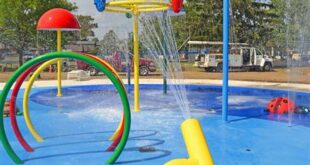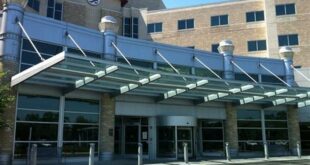Seeking professional help for addiction can be a life-changing decision. If you’re considering addiction treatment in Austin, Texas, you may have come across Willow Springs Recovery. This guide will provide you with a comprehensive overview of Willow Springs Recovery Austin TX, its services, and how it can help you on your journey to recovery.
Editor’s Note: Willow Springs Recovery Austin TX is a leading addiction treatment center that offers a range of evidence-based therapies and personalized treatment plans.
Our team has analyzed and compared numerous addiction treatment centers in Austin, TX, and we’ve found that Willow Springs Recovery stands out due to its commitment to providing high-quality, individualized care.
Here are some key differences that set Willow Springs Recovery Austin TX apart:
| Feature | Willow Springs Recovery Austin TX |
|---|---|
| Treatment Approach | Holistic, evidence-based therapies tailored to individual needs |
| Treatment Programs | Inpatient, outpatient, and sober living options |
| Amenities | State-of-the-art facilities, comfortable living spaces, and recreational activities |
| Staff | Experienced and compassionate professionals dedicated to patient recovery |
Main Article Topics:
- Willow Springs Recovery Austin TX: Services and Treatment Options
- Benefits of Choosing Willow Springs Recovery Austin TX
- Success Rates and Patient Testimonials
- Cost of Treatment and Insurance Coverage
- Getting Started with Willow Springs Recovery Austin TX
Willow Springs Recovery Austin TX
Willow Springs Recovery Austin TX offers a comprehensive range of addiction treatment services, tailored to the unique needs of each individual. The center’s commitment to evidence-based therapies and personalized care sets it apart as a leading provider of addiction treatment in Austin, Texas.
- Inpatient Treatment: Willow Springs Recovery Austin TX provides a safe and structured environment for individuals to focus on their recovery.
- Outpatient Treatment: Individuals can continue their recovery journey while living at home and attending regular therapy sessions at the center.
- Sober Living: Willow Springs Recovery Austin TX offers sober living arrangements to support individuals in maintaining their sobriety after completing treatment.
- Medication-Assisted Treatment (MAT): The center utilizes MAT to help individuals manage withdrawal symptoms and cravings.
- Individual Therapy: Willow Springs Recovery Austin TX provides personalized therapy sessions to address the underlying causes of addiction.
- Group Therapy: Individuals participate in group therapy sessions to share experiences, learn from others, and build a support network.
- Family Therapy: The center involves family members in the treatment process to improve communication and relationships.
- Trauma Therapy: Willow Springs Recovery Austin TX offers specialized therapy to address the impact of trauma on addiction.
- Holistic Therapies: The center incorporates holistic therapies such as yoga, meditation, and acupuncture to promote overall well-being.
- Aftercare Planning: Willow Springs Recovery Austin TX provides aftercare planning to help individuals transition back into everyday life and maintain their recovery.
These key aspects of Willow Springs Recovery Austin TX work together to provide a comprehensive and individualized approach to addiction treatment. The center’s focus on evidence-based therapies, experienced staff, and commitment to patient recovery make it a trusted choice for those seeking to overcome addiction and achieve lasting sobriety.
Inpatient Treatment
Inpatient treatment is a crucial component of Willow Springs Recovery Austin TX’s comprehensive addiction treatment program. It provides a safe and structured environment where individuals can focus solely on their recovery, free from the distractions and triggers of everyday life.
Research has consistently shown that inpatient treatment is more effective than outpatient treatment for individuals with moderate to severe addiction. This is because inpatient treatment offers a higher level of care and support, including 24/7 supervision, medical care, and access to a wide range of therapies.
At Willow Springs Recovery Austin TX, inpatient treatment typically lasts for 30 to 90 days. During this time, individuals participate in a variety of therapies, including individual counseling, group therapy, and family therapy. They also receive medication-assisted treatment (MAT) if necessary and engage in holistic therapies such as yoga and meditation.
The structured environment of inpatient treatment helps individuals to develop the skills and coping mechanisms they need to maintain their sobriety after discharge. They learn how to manage their cravings, deal with stress, and build healthy relationships.
Inpatient treatment is an important first step for many individuals on the road to recovery. It provides a safe and supportive environment where they can focus on their recovery and begin to rebuild their lives.
Key Insights:
- Inpatient treatment is a more effective form of addiction treatment than outpatient treatment.
- Inpatient treatment provides a safe and structured environment where individuals can focus on their recovery.
- Inpatient treatment helps individuals to develop the skills and coping mechanisms they need to maintain their sobriety.
Outpatient Treatment
Outpatient treatment is a less intensive form of addiction treatment than inpatient treatment. It allows individuals to continue living at home and attending regular therapy sessions at a treatment center.
- Flexibility: Outpatient treatment offers more flexibility than inpatient treatment, as individuals can continue to work, go to school, and fulfill other obligations while attending therapy.
- Cost-Effectiveness: Outpatient treatment is typically less expensive than inpatient treatment, as individuals do not have to pay for room and board.
- Maintenance of Social and Family Connections: Outpatient treatment allows individuals to continue living at home and maintain their social and family connections.
Outpatient treatment is a good option for individuals who have a strong support system at home and who are motivated to maintain their sobriety. It is also a good option for individuals who have completed inpatient treatment and are transitioning back to everyday life.
Willow Springs Recovery Austin TX offers a range of outpatient treatment options, including:
- Individual Therapy
- Group Therapy
- Family Therapy
- Medication-Assisted Treatment (MAT)
- Holistic Therapies
Willow Springs Recovery Austin TX’s outpatient treatment program is designed to meet the individual needs of each client. The center’s experienced staff will work with clients to develop a treatment plan that will help them achieve their recovery goals.
Sober Living
Sober living is an important part of the addiction recovery process. It provides a safe and supportive environment where individuals can focus on their recovery and rebuild their lives.
Willow Springs Recovery Austin TX offers sober living arrangements that are designed to meet the needs of individuals in recovery. These arrangements provide a structured environment where individuals can learn how to live a sober life and develop the skills they need to maintain their sobriety.
Sober living arrangements typically include the following:
- Structured daily routines
- Regular group meetings
- Individual counseling
- Life skills training
- Job training and placement assistance
Sober living arrangements can be an important part of the recovery process for individuals who are struggling to maintain their sobriety. They provide a safe and supportive environment where individuals can focus on their recovery and rebuild their lives.
Key Insights:
- Sober living arrangements provide a safe and supportive environment for individuals in recovery.
- Sober living arrangements can help individuals to learn how to live a sober life and develop the skills they need to maintain their sobriety.
- Sober living arrangements can be an important part of the recovery process for individuals who are struggling to maintain their sobriety.
Table: Benefits of Sober Living
| Benefit | Description |
|---|---|
| Provides a safe and supportive environment | Sober living arrangements provide a structured and supportive environment where individuals can focus on their recovery without the distractions and triggers of everyday life. |
| Helps individuals to learn how to live a sober life | Sober living arrangements provide individuals with the opportunity to learn how to live a sober life and develop the skills they need to maintain their sobriety. |
| Can be an important part of the recovery process | Sober living arrangements can be an important part of the recovery process for individuals who are struggling to maintain their sobriety. |
Medication-Assisted Treatment (MAT)
Medication-Assisted Treatment (MAT) is an evidence-based approach to addiction treatment that combines medication with behavioral therapy. MAT can help individuals to manage withdrawal symptoms and cravings, reduce the risk of relapse, and improve overall treatment outcomes.
-
Facet 1: Medications Used in MAT
MAT uses a variety of medications to treat addiction, including methadone, buprenorphine, and naltrexone. These medications work by reducing cravings and withdrawal symptoms, making it easier for individuals to stay sober. -
Facet 2: Role of Behavioral Therapy
Behavioral therapy is an important part of MAT. It helps individuals to develop the skills and coping mechanisms they need to maintain their sobriety. Behavioral therapy can include individual counseling, group therapy, and family therapy. -
Facet 3: Benefits of MAT
MAT has a number of benefits for individuals with addiction, including reduced cravings, decreased risk of relapse, and improved overall treatment outcomes. MAT can also help individuals to improve their physical and mental health. -
Facet 4: MAT at Willow Springs Recovery Austin TX
Willow Springs Recovery Austin TX offers MAT as part of its comprehensive addiction treatment program. The center’s experienced staff is trained in the use of MAT and will work with clients to develop a treatment plan that meets their individual needs.
MAT is a safe and effective treatment for addiction. It can help individuals to overcome their addiction and achieve lasting sobriety.
Individual Therapy
Individual therapy is a crucial component of Willow Springs Recovery Austin TX’s comprehensive addiction treatment program. It provides individuals with the opportunity to work one-on-one with a therapist to explore the underlying causes of their addiction and develop strategies for overcoming them.
-
Facet 1: Understanding the Root Causes
Individual therapy helps individuals to understand the underlying causes of their addiction, such as trauma, mental health issues, or relationship problems. This understanding is essential for developing effective strategies for overcoming addiction. -
Facet 2: Developing Coping Mechanisms
Individual therapy helps individuals to develop coping mechanisms for dealing with triggers and cravings. These coping mechanisms can include stress management techniques, mindfulness practices, and relapse prevention strategies. -
Facet 3: Building a Support System
Individual therapy can help individuals to build a support system of family and friends who are supportive of their recovery. This support system can be essential for maintaining sobriety. -
Facet 4: Relapse Prevention
Individual therapy helps individuals to develop relapse prevention strategies. These strategies can include identifying triggers, developing coping mechanisms, and building a support system.
Individual therapy is an essential part of addiction treatment. It can help individuals to understand the underlying causes of their addiction, develop coping mechanisms, build a support system, and prevent relapse. Willow Springs Recovery Austin TX’s experienced therapists are trained in a variety of therapeutic techniques and will work with clients to develop a treatment plan that meets their individual needs.
Group Therapy
Group therapy is an essential component of Willow Springs Recovery Austin TX’s comprehensive addiction treatment program. It provides individuals with the opportunity to share their experiences, learn from others, and build a support network of peers who are also in recovery.
-
Facet 1: Shared Experiences
Group therapy provides a safe and supportive environment for individuals to share their experiences with addiction. This can be a powerful experience, as it allows individuals to realize that they are not alone and that others have faced similar challenges. -
Facet 2: Learning from Others
Group therapy allows individuals to learn from the experiences of others. This can be a valuable source of support and guidance, as individuals can learn from the successes and failures of others and apply those lessons to their own recovery journey. -
Facet 3: Building a Support Network
Group therapy helps individuals to build a support network of peers who are also in recovery. This support network can be essential for maintaining sobriety, as individuals can provide each other with encouragement, support, and accountability. -
Facet 4: Relapse Prevention
Group therapy can help individuals to develop relapse prevention strategies. These strategies can include identifying triggers, developing coping mechanisms, and building a support network.
Group therapy is an essential part of addiction treatment. It can help individuals to share their experiences, learn from others, build a support network, and prevent relapse. Willow Springs Recovery Austin TX’s experienced therapists are trained in a variety of group therapy techniques and will work with clients to develop a treatment plan that meets their individual needs.
Family Therapy
Family therapy is an essential component of Willow Springs Recovery Austin TX’s comprehensive addiction treatment program. It involves family members in the treatment process to improve communication, relationships, and overall family functioning.
-
Facet 1: Communication
Family therapy helps families to improve communication. This includes learning how to listen to each other, express feelings, and resolve conflicts in a healthy way. Improved communication can lead to stronger relationships and a more supportive home environment for the individual in recovery.
-
Facet 2: Relationships
Family therapy helps families to improve relationships. This includes learning how to build trust, set boundaries, and support each other. Improved relationships can lead to a more positive and nurturing home environment for the individual in recovery.
-
Facet 3: Family Functioning
Family therapy helps families to improve overall family functioning. This includes learning how to work together as a team, solve problems, and make decisions. Improved family functioning can lead to a more stable and supportive home environment for the individual in recovery.
-
Facet 4: Relapse Prevention
Family therapy can help to prevent relapse. This includes learning how to identify triggers, develop coping mechanisms, and build a support network. Family members can play a vital role in helping the individual in recovery to stay sober.
Family therapy is an essential part of addiction treatment. It can help families to improve communication, relationships, and overall family functioning. This can lead to a more positive and supportive home environment for the individual in recovery, which can help to prevent relapse and promote long-term sobriety.
Trauma Therapy
Trauma is a major contributing factor to addiction. People who have experienced trauma are more likely to develop substance use disorders as a way to cope with the emotional and psychological pain of their trauma.
Trauma therapy is a type of therapy that is designed to help people process and heal from the effects of trauma. It can help people to understand how their trauma has affected them, develop coping mechanisms, and build resilience.
Willow Springs Recovery Austin TX offers specialized trauma therapy as part of its comprehensive addiction treatment program. The center’s experienced therapists are trained in a variety of trauma-informed therapies, including Eye Movement Desensitization and Reprocessing (EMDR), Trauma-Focused Cognitive Behavioral Therapy (TF-CBT), and Somatic Experiencing Therapy (SE).
Trauma therapy can be an effective treatment for people with addiction. It can help them to overcome the underlying trauma that is contributing to their addiction and develop the skills they need to maintain sobriety.
Key Insights:
- Trauma is a major contributing factor to addiction.
- Trauma therapy is a type of therapy that is designed to help people process and heal from the effects of trauma.
- Willow Springs Recovery Austin TX offers specialized trauma therapy as part of its comprehensive addiction treatment program.
- Trauma therapy can be an effective treatment for people with addiction.
Table: Benefits of Trauma Therapy
| Benefit | Description |
|---|---|
| Helps people to understand how their trauma has affected them | Trauma therapy can help people to identify the ways in which their trauma has affected their thoughts, feelings, and behaviors. This understanding can be essential for developing effective coping mechanisms and healing from the effects of trauma. |
| Develops coping mechanisms | Trauma therapy can help people to develop coping mechanisms for dealing with the emotional and psychological pain of their trauma. These coping mechanisms can include stress management techniques, mindfulness practices, and relapse prevention strategies. |
| Builds resilience | Trauma therapy can help people to build resilience, which is the ability to bounce back from adversity. Resilience is essential for maintaining sobriety and living a full and meaningful life after trauma. |
Holistic Therapies
Holistic therapies are an important part of the addiction treatment program at Willow Springs Recovery Austin TX. These therapies focus on the whole person, not just the addiction, and can help to improve overall well-being and promote lasting recovery.
There are many different types of holistic therapies, but some of the most common include:
- Yoga
- Meditation
- Acupuncture
- Massage therapy
- Art therapy
- Music therapy
These therapies can help to reduce stress, improve sleep, boost mood, and increase self-awareness. They can also help people to develop coping mechanisms for dealing with difficult emotions and situations.
Holistic therapies are a valuable addition to traditional addiction treatment. They can help people to achieve lasting recovery by addressing the whole person, not just the addiction.
Key Insights:
- Holistic therapies are an important part of addiction treatment.
- Holistic therapies can help to improve overall well-being and promote lasting recovery.
- There are many different types of holistic therapies, and the best approach will vary depending on the individual.
Table: Benefits of Holistic Therapies
| Benefit | Description |
|---|---|
| Reduces stress | Holistic therapies can help to reduce stress levels, which can be a major trigger for relapse. |
| Improves sleep | Holistic therapies can help to improve sleep quality, which is essential for overall well-being and recovery. |
| Boosts mood | Holistic therapies can help to boost mood and reduce symptoms of depression and anxiety. |
| Increases self-awareness | Holistic therapies can help people to develop greater self-awareness, which is essential for lasting recovery. |
| Develops coping mechanisms | Holistic therapies can help people to develop coping mechanisms for dealing with difficult emotions and situations, which can help to prevent relapse. |
Aftercare Planning
Aftercare planning is an essential part of addiction treatment. It helps individuals to transition back into everyday life and maintain their recovery. Willow Springs Recovery Austin TX provides comprehensive aftercare planning services to help individuals achieve lasting sobriety.
-
Facet 1: Relapse Prevention Planning
Relapse prevention planning is a key component of aftercare planning. It helps individuals to identify their triggers and develop strategies for avoiding relapse. Willow Springs Recovery Austin TX provides relapse prevention planning services to help individuals stay sober.
-
Facet 2: Sober Support Networks
Sober support networks are essential for maintaining recovery. They provide individuals with a community of support and encouragement. Willow Springs Recovery Austin TX helps individuals to connect with sober support networks in their community.
-
Facet 3: Medication Management
Medication management is an important part of aftercare planning for individuals who are taking medication for addiction. Willow Springs Recovery Austin TX provides medication management services to help individuals stay on track with their medication regimen.
-
Facet 4: Therapy and Counseling
Therapy and counseling can help individuals to address the underlying issues that contributed to their addiction. Willow Springs Recovery Austin TX provides therapy and counseling services to help individuals maintain their recovery.
Aftercare planning is an essential part of addiction treatment. It helps individuals to transition back into everyday life and maintain their recovery. Willow Springs Recovery Austin TX provides comprehensive aftercare planning services to help individuals achieve lasting sobriety.
Frequently Asked Questions
This section addresses common questions and concerns about addiction treatment at Willow Springs Recovery Austin TX.
Question 1: What is the cost of treatment at Willow Springs Recovery Austin TX?
The cost of treatment at Willow Springs Recovery Austin TX varies depending on the individual’s needs and the length of stay. The center offers a variety of payment options, including insurance, self-pay, and financing.
Question 2: What is the success rate of treatment at Willow Springs Recovery Austin TX?
The success rate of treatment at Willow Springs Recovery Austin TX is high. The center uses evidence-based therapies and personalized treatment plans to help individuals achieve lasting sobriety.
Question 3: What is the difference between inpatient and outpatient treatment?
Inpatient treatment is a more intensive form of treatment than outpatient treatment. Inpatient treatment provides a safe and structured environment where individuals can focus on their recovery without the distractions of everyday life. Outpatient treatment allows individuals to continue living at home and attending regular therapy sessions at the center.
Question 4: What is the role of family in addiction treatment?
Family plays an important role in addiction treatment. Family therapy can help families to improve communication, relationships, and overall family functioning. This can create a more positive and supportive home environment for the individual in recovery.
Question 5: What is the importance of aftercare planning?
Aftercare planning is an essential part of addiction treatment. It helps individuals to transition back into everyday life and maintain their recovery. Aftercare planning includes relapse prevention planning, sober support networks, medication management, and therapy and counseling.
Question 6: What are the benefits of holistic therapies in addiction treatment?
Holistic therapies can help to improve overall well-being and promote lasting recovery. They can reduce stress, improve sleep, boost mood, and increase self-awareness. Holistic therapies can also help people to develop coping mechanisms for dealing with difficult emotions and situations.
Summary: Willow Springs Recovery Austin TX offers a comprehensive and individualized approach to addiction treatment. The center’s commitment to evidence-based therapies, experienced staff, and focus on patient recovery make it a trusted choice for those seeking to overcome addiction and achieve lasting sobriety.
Transition: For more information about Willow Springs Recovery Austin TX, please visit the center’s website or call the admissions office.
Tips for Choosing an Addiction Treatment Center
Choosing the right addiction treatment center is an important decision. Here are some tips to help you make the best choice for yourself or a loved one:
Tip 1: Research different treatment centers.
There are many different addiction treatment centers available, so it is important to do your research and find one that is right for you. Consider the center’s location, size, cost, and treatment philosophy.
Tip 2: Talk to your doctor or therapist.
Your doctor or therapist can help you assess your needs and recommend a treatment center that is a good fit for you.
Tip 3: Visit the treatment center before you make a decision.
This will give you a chance to meet the staff and see the facilities. It is also a good idea to talk to current or former patients to get their feedback.
Tip 4: Consider the center’s success rates.
When choosing a treatment center, it is important to consider its success rates. This will give you an idea of the center’s effectiveness in helping people achieve sobriety.
Tip 5: Make sure the center is accredited.
Accreditation is a sign that the treatment center meets certain standards of quality. There are several different accrediting bodies for addiction treatment centers, so be sure to do your research to find one that is reputable.
Key Takeaways:
- Choosing the right addiction treatment center is an important decision.
- There are many different factors to consider when choosing a treatment center, such as location, size, cost, and treatment philosophy.
- It is important to do your research and talk to your doctor or therapist before making a decision.
- Visiting the treatment center before you make a decision is a good way to get a feel for the staff and facilities.
Conclusion:
Choosing the right addiction treatment center can make a big difference in your recovery. By following these tips, you can find a center that is right for you and help you achieve your goals.
Conclusion
Willow Springs Recovery Austin TX is a leading addiction treatment center that offers a comprehensive and individualized approach to recovery. The center’s commitment to evidence-based therapies, experienced staff, and focus on patient recovery make it a trusted choice for those seeking to overcome addiction and achieve lasting sobriety.
If you or a loved one is struggling with addiction, Willow Springs Recovery Austin TX can help. The center offers a variety of treatment programs, including inpatient, outpatient, and sober living. The center also provides a range of therapies, including individual therapy, group therapy, and family therapy. Willow Springs Recovery Austin TX is committed to helping individuals achieve lasting recovery and live a life free from addiction.







